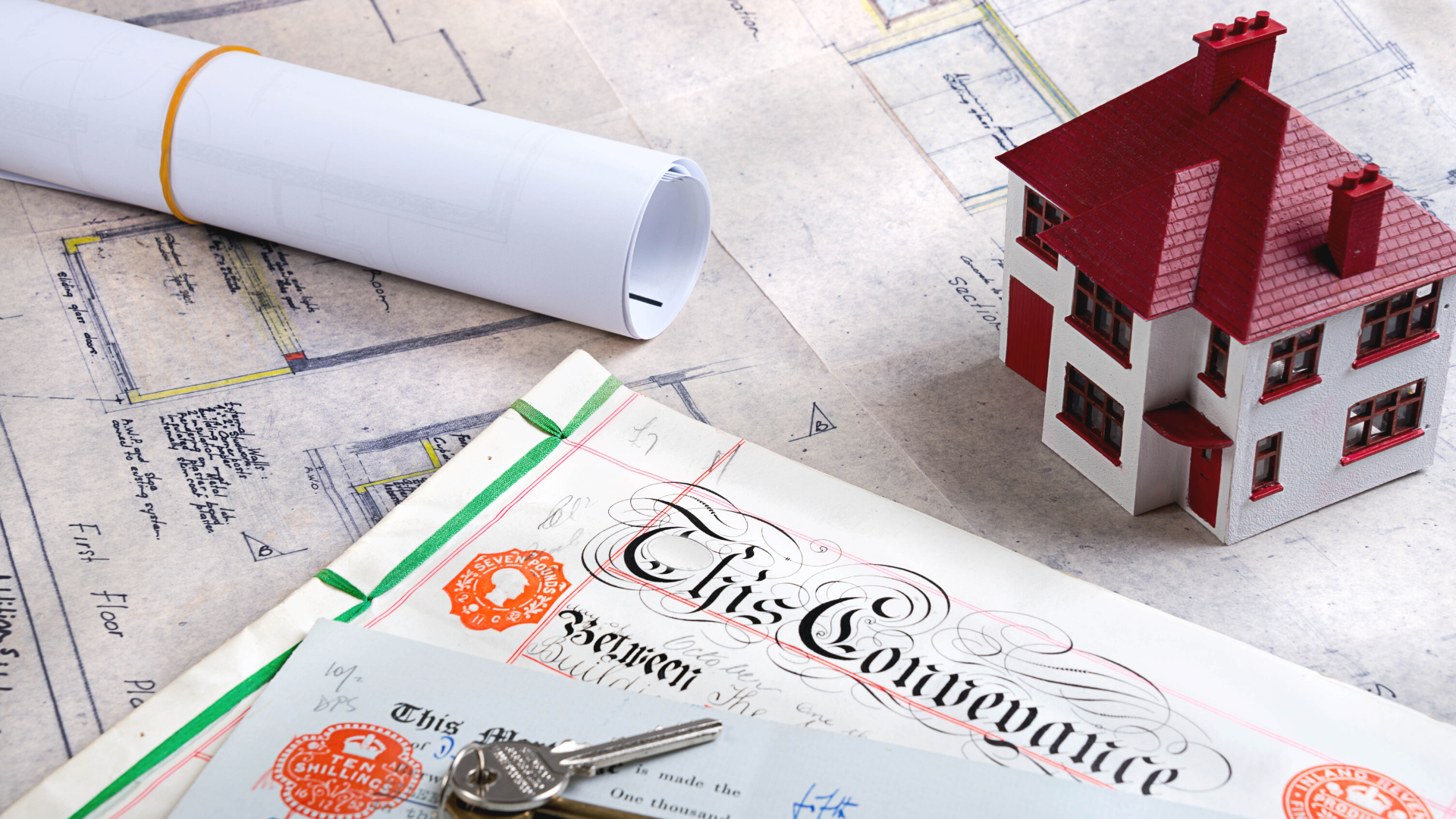In Short
Advice
Are you in the market for a new home or investment property? It can be tempting to jump on a great deal when you see it, but beware of suspiciously low prices that seem too good to be true. In a previous blog post, we discussed the reasons why some real estate listings may be priced below market value, such as motivated sellers or hidden issues with the property. However, what happens when that cheap real estate listing turns out to be a scam, and you find yourself out of money and without a property to show for it? That's where this blog post comes in. We'll discuss what steps you can take if you've fallen for a real estate scam and offer advice on how to avoid falling for one in the future. So read on and learn how to protect yourself from real estate scams, before it's too late.

Spotting a Real Estate Scam
Read More:
Common Red Flags of Real Estate Scams
When it comes to buying or renting a new property, it's important to exercise caution and be aware of the signs of a potential scam. Real estate scams can take many forms, from fraudulent listings to fake title companies and everything in between. By being familiar with the common red flags of real estate scams, you can avoid falling victim to these fraudulent schemes. In this section, we'll discuss some of the warning signs to look out for when dealing with real estate transactions, so you can make informed decisions and protect yourself from potential scams.
Unrealistically low prices

Unrealistically low prices are often one of the biggest warning signs of a real estate scam. If a property is listed for far less than its market value or similar properties in the area, it should raise a red flag. While it's true that some sellers may be motivated to sell quickly and may list their property below market value, this is not always the case. Scammers often use unrealistically low prices as a way to lure in unsuspecting buyers or renters, only to reveal hidden fees or ask for upfront payments once the transaction is underway. Always do your research on the property and its market value, and be cautious of deals that seem too good to be true.
Pressure to Act Quickly
Pressure to act quickly is another common warning sign of a real estate scam. Scammers often use high-pressure tactics to create a sense of urgency and push buyers or renters into making quick decisions without fully considering their options or doing their due diligence. This can take the form of limited-time offers, claims of competing offers from other buyers, or threats of losing the property if you don't act fast. While it's true that desirable properties can move quickly in competitive markets, be wary of any situation where you feel rushed or pressured into making a decision. Take the time to research the property, verify the legitimacy of the seller, and consult with a trusted real estate professional before making any commitments.
Lack of information about the property or seller

A lack of information about the property or seller is another red flag for a real estate scam. Legitimate sellers and landlords should be willing and able to provide detailed information about the property, including its history, condition, and any potential issues or drawbacks. If a seller or landlord is evasive or unresponsive when you ask for information or refuses to provide it altogether, it may indicate that they are hiding something or that the property does not actually exist. Additionally, if you cannot find any information about the seller or landlord online, such as their name, contact information, or business address, it could be a sign that they are not a legitimate entity. Always do your research and verify the information provided by the seller or landlord before moving forward with a real estate transaction.
Property & Seller Research Tips
Before making any payments or commitments in a real estate transaction, it's essential to conduct thorough research on both the property and its seller. One of the best ways to start is by searching for the property online and checking for any red flags, such as inconsistent or incomplete information, negative reviews, or reports of scams or fraud. You should also verify the legitimacy of the seller or landlord by checking their credentials, such as their business registration, license, or certification. Additionally, you can consult with a trusted real estate agent or attorney who can provide advice and guidance on the transaction and ensure that all necessary documentation is in order. Finally, be sure to inspect the property in person before making any payments or signing any contracts to ensure that it meets your expectations and that there are no hidden issues or problems.
What to do if you got scammed
Real estate scams can be devastating, leaving victims with significant financial losses and a sense of betrayal and frustration. If you suspect that you have been scammed in a real estate transaction, it's important to take action immediately to protect yourself and minimize the damage. In this section, we'll discuss some of the steps you can take if you fall victim to a real estate scam, including how to report the fraud, recover your losses, and prevent similar incidents from happening in the future. While it can be a difficult and stressful experience, knowing how to respond can help you regain control and get back on track.
Report to the Police

If you have fallen for a real estate scam in Thailand, one of the most important steps to take is to report the incident to the police. The police can investigate the matter and potentially recover your losses. When reporting the scam, provide as much detail as possible, including the seller's name and contact information, the location and details of the property, and any documentation you have related to the transaction. It's also essential to keep all documentation related to the transaction, including contracts, receipts, and communication with the seller. These documents can be valuable evidence if you need to take legal action or file a claim with your bank or credit card company. By reporting the scam to the police and keeping detailed records, you can increase your chances of recovering your losses and preventing similar incidents from happening in the future.
(For Foreigners) Contact your Embassy
If you are a foreigner and you fall victim to a real estate scam in Thailand, contacting your embassy or consulate can be an essential step to take. Your embassy or consulate can provide you with guidance and support, including information on local laws and regulations, legal assistance, and translation services. They can also help you communicate with local authorities and navigate the complex legal system in Thailand. By contacting your embassy or consulate, you can get the help you need to protect your rights and interests and work towards resolving the situation. It's crucial to act quickly and contact your embassy or consulate as soon as possible if you suspect that you have been scammed, as time is often of the essence in these situations.
Contact a lawyer

If you fall victim to a real estate scam in Thailand, contacting a lawyer who specializes in real estate and fraud cases is an important step to take. A lawyer can provide you with legal advice and guidance, and help you navigate the complex legal system in Thailand. They can also represent you in court or negotiate on your behalf to recover your losses. When choosing a lawyer, look for someone who has experience handling real estate scams and has a good track record of success. It's also important to choose someone who you feel comfortable working with and who speaks your language fluently. By contacting a lawyer, you can increase your chances of recovering your losses and taking legal action against the scammer.
If Possible, Cancel Payments

If you fall for a real estate scam in Thailand, one of the first steps you should take is to cancel any payments you made to the scammer. If you paid using a credit card or bank transfer, contact your bank or credit card company immediately and explain the situation. They may be able to reverse the transaction or freeze the funds to prevent the scammer from accessing them. Be sure to provide your bank or credit card company with any documentation you have related to the transaction, including contracts, receipts, and communication with the seller. If you paid in cash, it may be more difficult to recover your funds, but it's still important to report the scam and seek legal advice. By canceling any payments and working with your bank or credit card company, you can reduce your losses and increase your chances of recovering your funds.
Avoiding Real Estate Scams in the Future
To avoid falling victim to real estate scams in the future, there are several tips to keep in mind. First, work with reputable real estate agents or brokers who have a track record of success and can provide you with references. Second, verify the legitimacy of a property and its seller by conducting thorough research, including checking the property's title and registration documents. Third, only make payments through secure channels such as bank transfers or credit cards, and avoid cash transactions. Fourth, trust your instincts and don't ignore warning signs such as unrealistic prices, pressure to act quickly, and lack of information about the property or seller. Finally, consider working with a lawyer or consulting with local authorities if you have any doubts or concerns about a property transaction. By taking these steps, you can reduce your risk of falling for real estate scams and protect your investment in the long run.
Conclusion
In conclusion, falling for a real estate scam can be a frustrating and devastating experience. However, by staying vigilant, doing your research, and following the steps outlined in this article, you can increase your chances of avoiding scams and protecting yourself from financial loss. Remember to trust your instincts, work with reputable professionals, and never make payments through unsecured channels. By taking these precautions and staying informed, you can ensure that your real estate transactions are safe, secure, and successful. Don't let a scammer take advantage of you - stay alert and protect yourself from fishy real estate listings.
Find your ideal property, available for sale or rent in the best prices possible, or list your property for sale or rent here. Alternatively, if you have any further questions, please get in touch with us:
FAQs
Lorem ipsum dolor sit amet, consectetur adipiscing elit. Suspendisse varius enim in eros elementum tristique.
Explore More Topics
Free real estate resources and tips on how to capitalise



